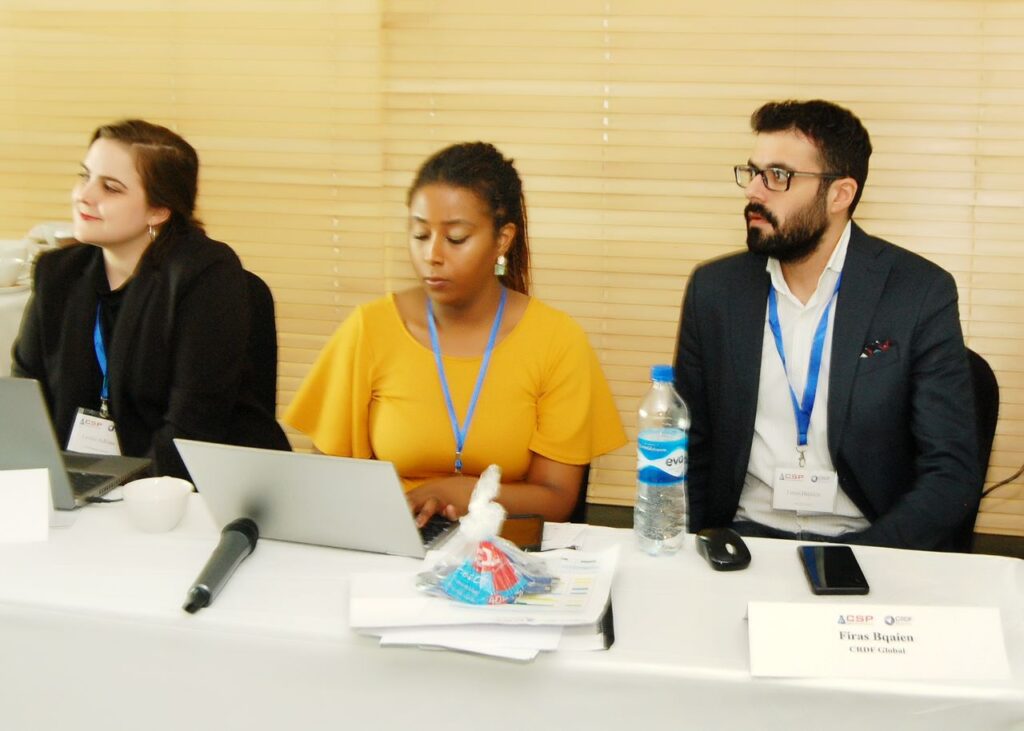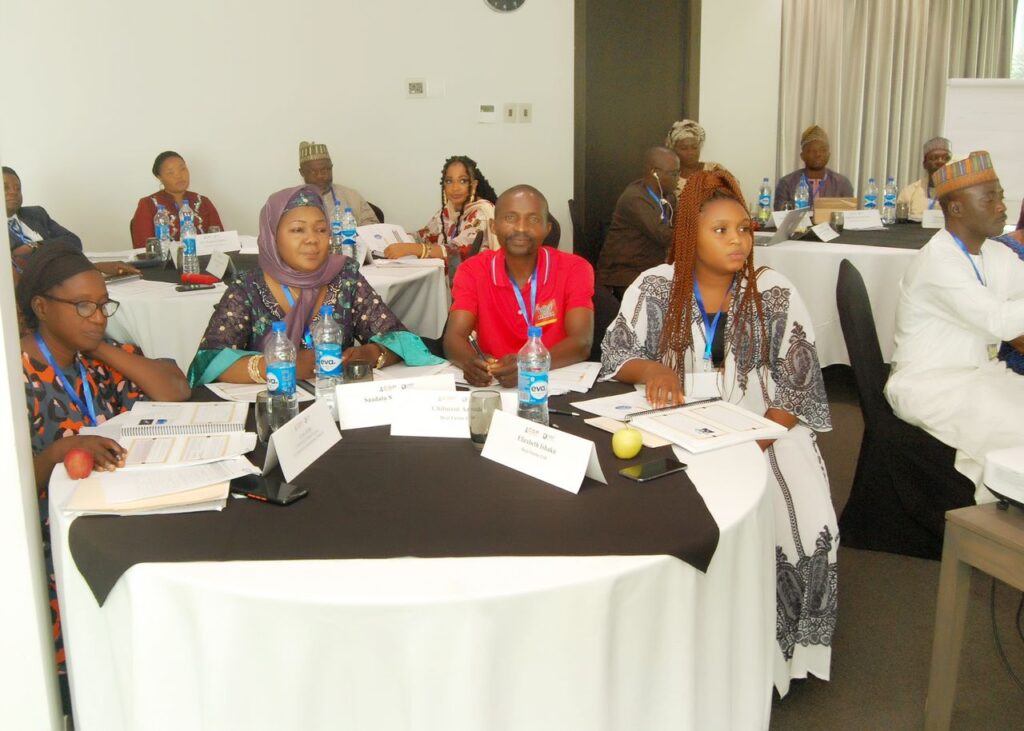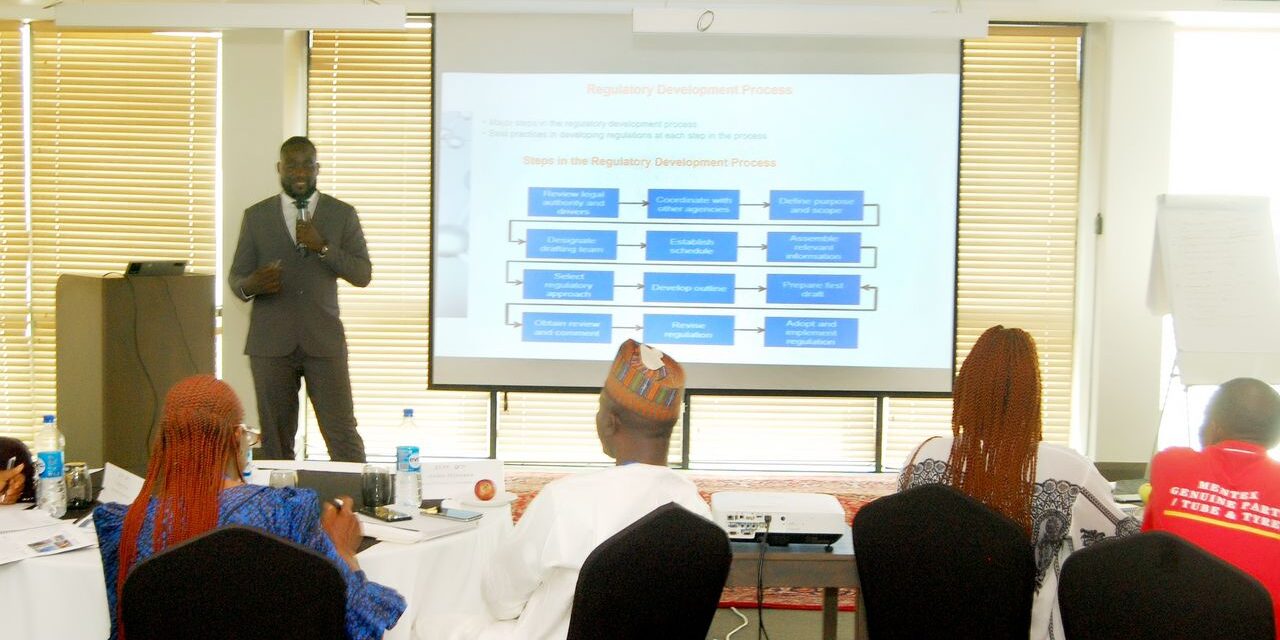| 16 – 18 Feb 2023 |
Lagos
NIGERIA AGROCHEMICAL WORKSHOP
Resource Persons: Rohan Perera, Ph.D; Prince Jay Oghifo; Christian N. Madu Ph.D.; Peter Asewe, Patrick Omokpariola, Ph.D., Buba Shanu
For the 3-day event of February 16-18, 2023, ASEAF in collaboration with Civilian Research and Development Foundation (CRDF) and sponsorship from Chemical Security Program (CSP), held a well-attended Chemical Security Workshop, this time at the Lagos Legend Hilton Hotel in Lagos, Nigeria.

Participants were drawn from fields in Agriculture, Environment, Academics, Regulations, Government, and Manufacturing and shared a common understanding that Agrochemicals are a vital tool for ensuring the health and productivity of crops, but their use also comes with risks that must receive proper mitigations.
To ensure that agrochemicals are used safely and securely, chemical security fundamentals must be established. The first step in chemical security fundamentals is to identify the specific needs of the agrochemical user. This includes identifying the type of agrochemicals being used, the size of the operation, the number of handlers, and the location of the facility. This process can help identify potential risks associated with agrochemical use, such as improper storage, misuse, theft, or accidental release.
Once the potential risks are identified, chemical security fundamentals must be put in place. This includes proper storage, labeling, and disposal of agrochemicals, as well as the use of protective equipment such as gloves, goggles, and respirators. Most importantly, the chemicals must be secured from unauthorized access.

In addition, a comprehensive training program must be implemented to ensure all handlers understand the risks associated with agrochemical use, and how to use the chemicals safely and securely. This includes regular training and refresher courses, as well as access to safety data sheets (SDS) for each agrochemical used.
Finally, proper security measures should be implemented to prevent unauthorized access to agrochemicals, like establishing a secure perimeter fence around the storage facility and limiting access to authorized personnel only, establishing a system for reporting accidents or incidents involving agrochemicals, and ensuring handlers are familiar with the safety data sheets (SDS) for each agrochemical used, etc.
Resource Persons
 Rohan Perera, Ph.D
Rohan Perera, Ph.D
Affiliated Subject Matter Expert CBRN Risk Mitigation.
Former Senior Program Officer in Chemical Security and Safety Management
Organization for the Prohibition of Chemical Weapons (OPCW)
 Christian N.Madu, Ph.D
Christian N.Madu, Ph.D
Center for Environmental Management & Control, University of Nigeria
 Patrick Omokpariola, Ph.D
Patrick Omokpariola, Ph.D
Director, NAFDAC
 Peter Asewe
Peter Asewe
Environmental Chemist, TATA Chemicals limited.
 Buba Shanu
Buba Shanu
Subject Matter Expert, Agrochemicals and Extension Services
 Jay Oghifo
Jay Oghifo
Subject Matter Expert, Chemical Safety and Security.

